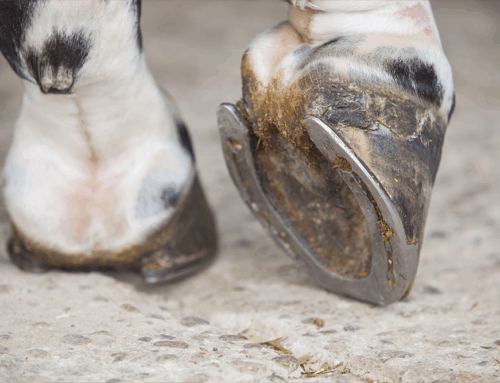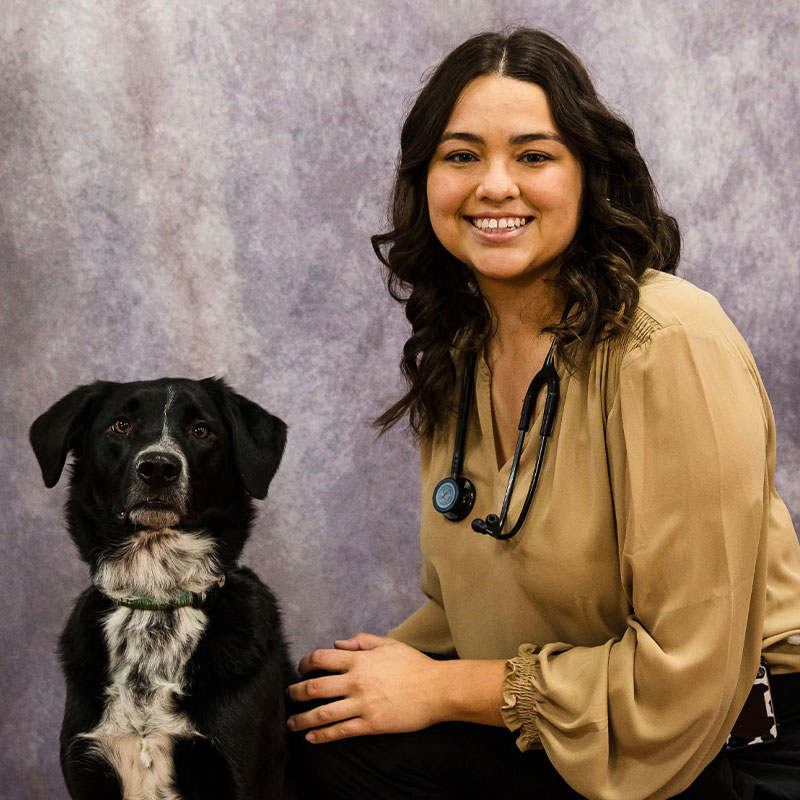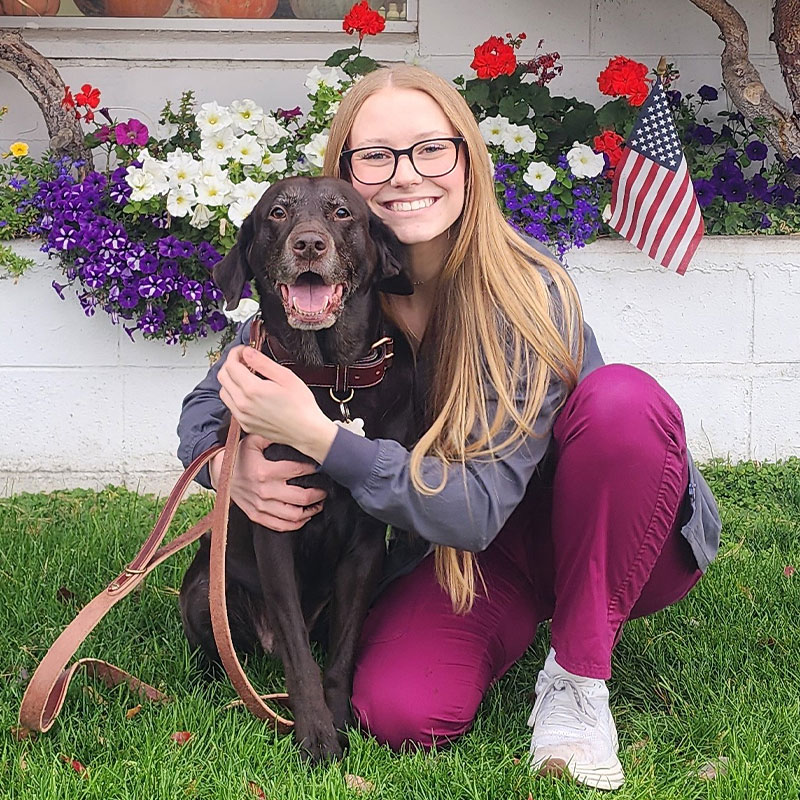At Lewiston Veterinary Clinic in Lewiston, ID, we know how frustrating it can be to watch your dog itch, scratch, or struggle with recurring ear or skin issues—and not know why. Allergies are surprisingly common in dogs, and they can impact everything from daily comfort to long-term health. The good news? With the right treatment plan, most dogs can get relief and get back to enjoying life.
This guide is here to help you:
- Spot common allergy symptoms in dogs
- Understand the different types of allergies and what causes them
- Explore treatment options and lifestyle changes that make a real difference
If you’re noticing signs of allergies in your dog, schedule an appointment at Lewiston Veterinary Clinic—we’re here to help.
Recognizing Allergy Symptoms in Dogs
Allergies in dogs can present in a few different ways—some are subtle, others are hard to miss. If your dog is constantly licking, scratching, or shaking their head, it’s worth looking into.
Skin Reactions: Itching, Licking, and Hair Loss
Skin issues are one of the most common signs of an allergic reaction. You might notice your dog:
- Constantly licking or chewing their paws
- Developing red, irritated skin or hot spots
- Losing hair in patches
These signs can stem from flea bites, food sensitivities, or environmental allergens. Learn more in Dog Allergies: Symptoms & Treatment – AKC.
Recurring Ear Infections
Is your dog shaking their head, scratching their ears, or dealing with waxy buildup? Allergies often cause inflammation in the ears, which creates the perfect environment for infections. Redness, odor, or discharge are key signs. Regular cleanings can help—here’s a helpful guide from Cornell’s Canine Health Center.
Digestive Upset
Some dogs react to food allergens with tummy trouble. Symptoms might include:
- Vomiting
- Diarrhea
- Gas or bloating
- Decreased appetite
In many cases, a change in diet can make a huge difference. The most common allergies are proteins, like chicken, beef, and dairy, not grains.
Sneezing, Coughing, and Watery Eyes
Seasonal allergies don’t just affect people—dogs can experience respiratory symptoms, too. If your pup is sneezing, coughing, or has red, watery eyes, allergens like pollen or mold could be the culprit.
Hives or Facial Swelling
Severe allergic reactions can cause sudden swelling around the face, lips, or eyes, and itchy raised bumps (hives). This is a medical emergency—seek immediate veterinary care. You can read more about hives in dogs here.
Understanding What Causes Allergies in Dogs
Figuring out the root cause of your dog’s allergy can take time—but it’s essential to long-term relief. Here’s a breakdown of common triggers:
Environmental Allergies (Atopic Dermatitis)
These are triggered by things like:
- Pollen, grass, mold, or dust mites
- Household cleaning products, perfumes, or laundry detergents
Dogs with environmental allergies may itch seasonally or year-round. To help manage symptoms:
- Wipe paws and bellies after walks
- Use HEPA filters indoors
- Choose unscented or pet-safe cleaning products
For more helpful strategies, visit Allergy Tips for Small Animals – Purdue Veterinary Hospital.
Food Allergies
Proteins like beef, chicken, or dairy are common culprits, but grains or artificial additives can also trigger a reaction. The gold standard for diagnosing food allergies is a strict elimination diet. Many dogs improve with a switch to hypoallergenic or limited-ingredient diets. Learn how nutrition can affect dogs with skin symptoms in this resource from OVC Pet Nutrition.
Flea Allergy Dermatitis
For some dogs, even a single flea bite can lead to intense itching and inflammation. You’ll often see symptoms at the base of the tail. Year-round flea prevention is key. Learn why consistent protection matters from AAHA’s guide to parasite prevention.
Treatment Options: Helping Your Dog Feel Better
There’s no one-size-fits-all allergy treatment—but with your vet’s guidance, most dogs can find relief. Here’s what we often recommend:
Veterinary Treatments & Medications
Depending on the cause and severity of your dog’s symptoms, we may recommend:
- Antihistamines and anti-itching medications like Apoquel or Benadryl (always vet-approved first!)
- Steroids for severe inflammation
- Cytopoint injections for long-lasting itch relief
- Allergy testing and immunotherapy for long-term control
- Diet changes to low-allergen, anti-inflammatory diets
- Medicated topical therapies like sprays, shampoos, ointments, and more
To learn how topical treatments fit into the picture, visit The Role of Topical Therapy – dvm360. - Regular brushing and bathing can also help remove allergens from your dog’s coat. For grooming tips, check out Why Pets Need Regular Grooming – ASPCA.
Preventing Allergy Flares
Routine Vet Visits
Staying ahead of allergy symptoms starts with regular checkups. We can track patterns, adjust medications, and offer tailored advice. If symptoms are persistent or worsening, referral to a veterinary dermatologist may be helpful.
Book a consultation with us here.
Nutrition for Sensitive Dogs
Diet plays a major role in allergy prevention. Consider:
- Limited-ingredient or prescription diets
- Omega-3s (like fish oil) to support skin health
- Avoiding artificial colors, preservatives, or unnecessary fillers
Helping Your Dog Live Comfortably with Allergies
Allergies can feel overwhelming, but they’re manageable with the right plan. The combination of veterinary care, home strategies, and nutritional support can dramatically improve your dog’s comfort and quality of life.
At Lewiston Veterinary Clinic, we’re here to support you through every step—from diagnosis to long-term care. If your dog is scratching more than usual or you’re concerned about food reactions, don’t wait. Relief is possible—and we’d love to help.





























Leave A Comment